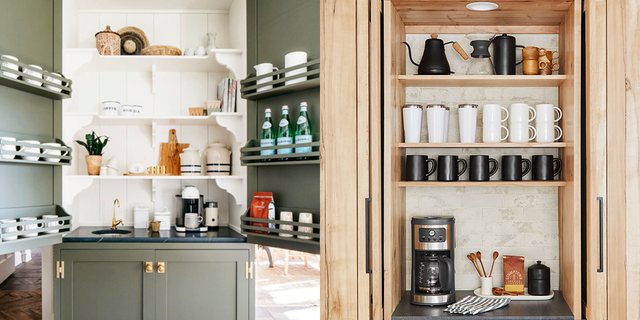In recent weeks, design brands have put their creative power to good use by retooling production lines to make hand sanitizer or ventilators, developing new objects to prevent the virus’s spread, and donating critical supplies to healthcare workers. We’re thankful for their hard work and resourcefulness, and we’ve collected their inspiring initiatives to address the coronavirus crisis below. Take a look, and consider donating to their campaigns to support the relief effort.
Home Goods & Decor
WAC Lighting, based in New York, has donated surgical masks to be distributed to hospitals throughout the United States.
New York–based WAC Lighting is donating 500,000 level-3 surgical masks to U.S. hospitals through The Glow Foundation. “Our community well-being lies in the hands of the heroic healthcare providers among us.” says WAC president and co-CEO Shelley Wald. “Medical personnel and first responders need all the protection and support we can muster, but we cannot do it on our own.”
Machine-washable rug company Ruggable has donated funds to hospitals in need in California.
Los Angeles–based machine-washable rug brand Ruggable donated $10,000 through a GoFundMe campaign to provide N95 masks to hospitals in need in Southern California. The team’s donation will fund the purchase of 5,000 masks, which will support Cedars-Sinai’s goal of 30,000 masks for hospital staff and caretakers. In addition to this contribution, Ruggable has made donations to BABY2BABY, No Kid Hungry, and Feeding America to help provide meals and supplies to families in need during these difficult times.
Avocado Green Mattress has pivoted their production line to produce double-layer organic cotton face masks.
Organic mattress and bedding brand Avocado has shifted some production in the cut & sew departments in their Los Angeles factories to make reusable organic face masks. The company is selling the masks at cost, and while they’re not medical grade, the CDC has recommended using a face covering in the absence of other options. The masks sell in packs of 8, and Avocado notes that they are also fully equipped to make temporary or disposable mattresses for shelters and temporary housing; reusable or washable sheeting; waterproof wedge pillows; bed toppers; and disposable or inexpensive protective garb such as booties, smocks, etc.
Mellanni Fine Linens is donating sheet sets to be turned into face masks for hospital workers in New Jersey. The outer layer of the masks will be made from cotton sheets, the inner layer will be made of flannel fabric, and the straps will be made of elastic from Mellanni’s fitted sheets. Mellanni notes that hospitals will be using cloth masks for employees that do not come in contact with COVID-19 patients in order to save actual masks for personnel that do come into contact with the disease.
Cincinnati, Ohio–based Standard Textile has converted several of their factories and manufacturing facilities to produce personal protective equipment (PPE) for hospitals around the country. The company has also quickly worked to develop a reusable cover gown for healthcare workers that is liquid resistant and breathable.
Standard Textile, a manufacturer of healthcare and hospitality products including Mascioni Hotel Collection linens, is quickly converting several facilities to help address the current pandemic. The family-run company has pivoted manufacturing operations in its facility in Brownsville, Texas, to make face masks, while another facility has shifted to making face shields for hospital workers. The company has also developed a liquid resistant, breathable, and reusable cover gown for healthcare workers. Dr. Richard Hobert, Director of Development for Standard Textile, says that “in three short weeks, we orchestrated fabric development, material sourcing, garment fabrication, wash durability testing, and other product testing to deliver an essential reusable gown for our medical communities.”
Portland Garment Factory, a design and zero-waste fabrication studio, has pivoted some soft goods production lines to make PPE—including cloth masks and gowns—for healthcare workers.
In Oregon, the Portland Garment Factory has been producing gowns and masks for medical professionals. They’ve shipped out 7,500 barrier masks over the past two weeks, and their PPE is made of biodegradable material. The company has set up a donations page to help offset the costs of making PPE for healthcare workers.
3D Printing & Engineering
Dyson, a major producer of high-tech filters, vacuum cleaners, and hair dryers, is joining the fight against the novel coronavirus.
Dyson, the British technology company known for its vacuum cleaners and hair dryers, recently announced that it has developed—in a matter of ten days—a ventilator designed specifically for coronavirus patients. The company began working on its CoVent ventilator after founder James Dyson received a call from UK Prime Minister Boris Johnson. Dyson anticipates that the ventilators will be ready in early April.
Stratasys machines can be used to print everything from futuristic chair designs to parts for face shields to protect healthcare workers from exposure to the COVID-19 virus.
In the 3D printing industry, several companies have mobilized their technology and manufacturing resources. Stratasys, one of the earliest and largest manufacturers of 3D printers, is responding to the COVID-19 crisis by sharing design files and “rapidly scaling efforts to print both reusable and disposable face shields on dozens of FDM 3D printers located in Texas, California, and Minnesota.” Their goal is to deliver 5,000 shields over the next week, and they are also looking into designs for face masks and filtration systems.
Isaac Budmen and Stephanie Keefe, of Budmen Industries in New York, developed an open-source face shield that can be downloaded and 3D printed for healthcare workers treating the COVID-19 virus.
Budmen Industries, a Syracuse, New York–based 3D printer designer and manufacturer, is using all of its printers to produce parts for face shields for healthcare workers. The company has made its printing files available to anyone, and it’s working to match healthcare organizations in need with registered 3D-printed face shield producers.
The UW Makerspace at the University of Wisconsin-Madison worked with the UW Hospital, Delve, and Midwest Prototyping to design a medical face shield for healthcare professionals. The design, based on shields currently in use in hospitals around the country, can be produced at scale in an economical way. UW Makerspace has made the design available on its website, along with contact information for suppliers and buyers.
Transportation & Aerospace
A view from inside Tesla’s Model 3 electric sedan.
Tesla CEO Elon Musk has confirmed to New York City mayor Bill de Blasio that he will donate hundreds of ventilators to the city and New York State. The ventilators were manufactured in China from U.S. government–approved producers. Musk has also hinted at a potential collaboration with the engineering team at Medtronic, a medical device company, to produce ventilators.
Airbus is one of many companies in the UK that are using their engineering expertise to produce ventilator parts.
British automobile manufacturer Vauxhall and multinational aerospace corporation Airbus are also planning to use their manufacturing and assembly expertise to 3D print ventilator parts for coronavirus patients in the UK.
Fashion & Luxury Retailers
In France, luxury goods retailer LVMH announced that it has converted its perfume manufacturing facilities to produce hand sanitizer that will be provided to French health authorities at no cost. The factories normally produce makeup and perfume for the company’s high-end brands, which include Givenchy, Dior, Bulgari, and Guerlain.
Kering, the parent company of Saint Laurent and Balenciaga, committed its French factories to produce face masks once given formal approval from the French government. The company is also donating 3 million surgical masks.
The Armani group announced that its manufacturing facilities in Italy have pivoted to produce single-use medical overalls for healthcare workers in the nation’s hardest-hit areas.
In the Italian city of Perugia, Prada has converted its factory to produce masks and medical overalls for healthcare workers in the region. And Gucci recently promised to donate 2 million euros split between the Italian Civil Protection Department and the World Health Organization’s COVID-19 Solidarity Response Fund.
Sigil’s one-ounce bottle contains a simple blend of alcohol and essential oils.
Across the Atlantic, Sigil Scent, which produces a line of 100% natural fragrances, has started offering scented hand sanitizer at cost, with the option for consumers to donate $5 to the L.A. LGBY Center’s Food Pantry or $5 toward the company’s operating costs. The sanitizer is a combination of 80% 190-proof organic wheat–based ethyl alcohol with distilled water and essential oils.
Architecture & Industrial Design
Carlo Ratti Associati has teamed up with Italo Rota on CURA (Connected Units for Respiratory Ailment). The initiative is transforming shipping containers into pods for intensive care patients suffering from the COVID-19 virus.
On the design and construction side, Carlo Ratti Associati and Italo Rota are transforming shipping containers into CURA intensive care pods for COVID-19 patients. The pods, which employ negative pressure to contain contaminated air, are currently under construction as a test for a hospital in Milan, Italy, with sponsorship from UniCredit.
Architectural designers Ivo Tedbury and Freddie Hong developed a hands-free door opener that can be 3D printed.
London-based architectural designers Ivo Tedbury and Freddie Hong worked together to create Hands-Free Architecture, which they say is “an emergency response to adapt our built environment during the COVID-19 pandemic.” Their 3D-printed design attaches to standard door hardware so that doors can be opened with a sleeved forearm instead of one’s hands. The open-source prototype can be printed from a variety of materials.
NYC Makes PPE distributed spools of plastic to makerspaces around New York City for the production of face shields for local hospital workers.
Several architecture firms across the country, including BIG, are devoting their model shops and 3D printers to the production of face shields.







